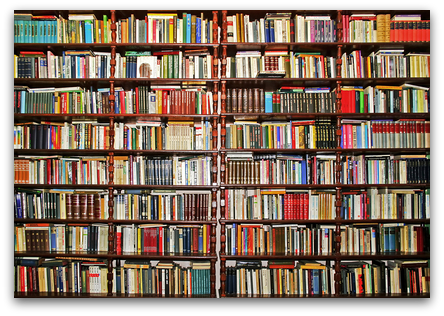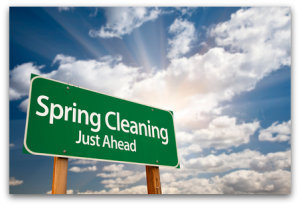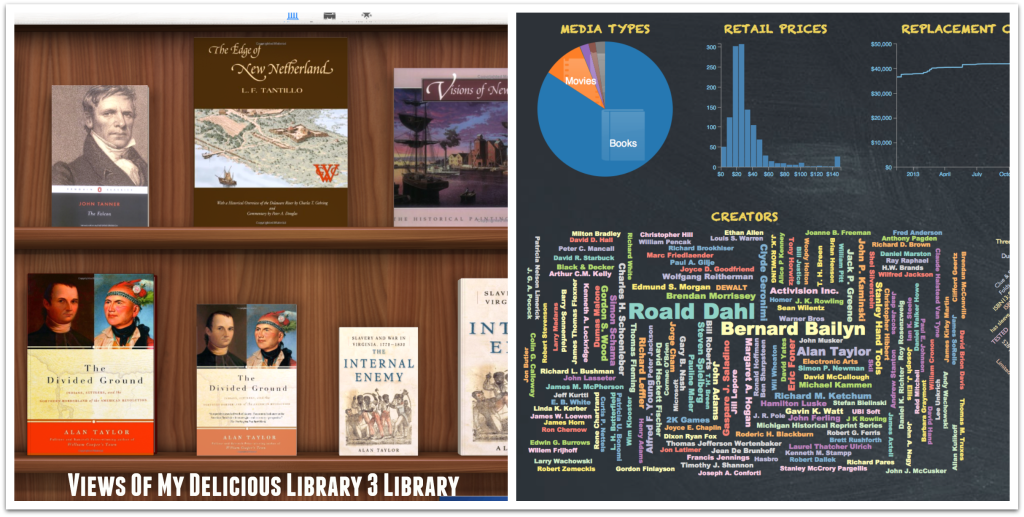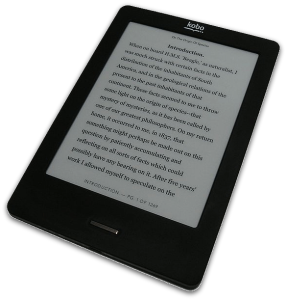 Do you have enough bookshelf space?
Historians collect a lot of books and within a short period of time our bookshelves can transform from neat and organized spaces to overpacked and unruly spaces.
Do you have enough bookshelf space?
Historians collect a lot of books and within a short period of time our bookshelves can transform from neat and organized spaces to overpacked and unruly spaces.
Therefore it is important that we develop a system to keep track of the books we own and that we conduct regular reviews of our libraries so we can purge them of books that no longer serve our needs.
In this post you will learn three techniques that you can use to organize your library and create more bookshelf space.
Tip #1: Keep Track of the Books You Have
Do you know what books you have in your library?
Do you know where to find the books you have?
As your library grows it can become difficult to keep track of the books you own and know where to find them.
That is why I use a personal library app to help me keep track of the volumes I own and where I can find them.
In the past I have used Readerware ($39.95). Presently, I use Delicious Library 3 ($25), which is a Mac-only app.
Both apps use barcode and ISBN information to keep track of your books.
Each time you acquire a new book, input the ISBN information into the app, and the software will create a new entry in your library with the information it downloads about the book from Amazon.com and other book databases.
Before I click "OK" to finalize my new entries, I include information about whether the book is signed, a first edition, and where I intend to keep it, i.e. my home, my e-reader, or in my storage unit. This information helps me locate the book if I can't find it when I want to use it.
Both Readerware and Delicious Library 3 include many cool features that will help you keep your library up-to-date and know more about the books you keep in it.
For example, in Delicious Library 3 you can enter books into your library database by manually entering ISBN numbers or titles or by using either the built-in or an external barcode scanner.
Both Delicious Library 3 and Readerware have a loan feature that will assign the location of a book to the friend or colleague who borrows it. (Both apps will let you catalog your DVDs, video games, and tools too.)
A library database app will also help you better understand your library.
Both Readerware and Delicious Library 3 will provide you with information about how many books you own, who wrote them, and what your library is worth.
If you would like to keep track of your books in an app with fewer features and frills, you could create a Google or Excel spreadsheet.
Create columns for "author," "book title," and "location." You may also want to create columns for "topic," to help you locate books for specific projects, and "borrower," so you can keep track of books you lend out.
Keeping track of the books you own and where you can find them is the first step to identifying what books you need and what books you can purge from your library.
Tip #2: Consider Electronic Editions
You can create bookshelf space by purchasing ebooks instead of physical books.
I ask three questions before I purchase a new book:
1. Is the book for work or pleasure?
If work, I ask the second and third questions.
2. Does the eBook contain page numbers?
If no, I purchase the physical copy because I may need to cite the book.
If yes, I ask the third question.
3. Will I need to consult the index of this book?
If yes, I purchase the physical copy because I find it easier to use the indexes in physical books.
Before you purchase a book, you should also ask whether you really need to own the book.
If you just want to read the book you could borrow it from the library.
Purchasing eBooks instead of physical books and making use of university or public libraries will help you save bookshelf space for the books you need to own.
Tip #3: Conduct a Yearly Library Purge
 You should set aside a day or two once a year to cull books from your library.
You should set aside a day or two once a year to cull books from your library.
This act will help you get rid of books that you are finished with, will never read, or that are no longer relevant to your research interests.
Culling books from your library is a positive measure that will create space in your library for new books and release books that you no longer need to new owners who will find value in them.
So what do you do with books that you would like to purge from your library?
Here are three ideas:
1. Check their value on Amazon.com and other used book websites to see if you can sell them for cash or credit.
2. Donate your textbooks and document readers to graduate students or social studies departments in your school district.
Teachers love these types of books and use them to write their lectures and in-class activities.
3. Donate your old books to library book sales.
I time my annual purge with the annual book sale for my Boston Public Library branch.
Follow these tips and your old books will find good, new homes. You will also uncover the bookshelf space you desperately need.
Conclusion
Bookshelf space is a precious resource that we must use wisely.
We can help renew this resource by periodically pruning of our libraries and by keeping better track of the books we own.
 What Do You Think?
What Do You Think?
How do you manage your library?


